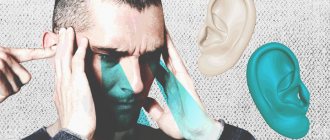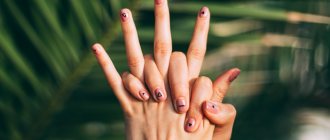Life motivation
A portal about self-development, personal growth and a positive attitude towards life
Searching for information on the portal
- home
- Personal development
- Self-development
Addiction to social networks is often hidden behind seemingly harmless habits that few people attach importance to. We just woke up and immediately went to the phone to see how our virtual friends were doing. Is this a familiar phenomenon? I'm sure it's familiar. And it doesn’t matter whether you or your spouse, or maybe even your children, do this. The point is that this seemingly unremarkable situation does not alarm anyone, although it should.
For some reason, people who do not have pages on social networks are perceived by society as lagging behind progress and modern life in general. Sometimes we don’t notice that virtual communication absorbs us entirely. But it shouldn't be like that. How to get rid of addiction to social networks - this is what today’s article will be about.
We become dependent, and any type of dependence does not bode well.
Addiction to social networks is put on the same level as drug or alcohol addiction.
In principle, there is no harm to health, you might think. But this problem is much more insidious than it seems at first glance. If the harm from alcohol or drug addiction is obvious, and these illnesses are actively being fought, then addiction to social networks is dangerous because they do not cause panic among the public. Over time, a person becomes withdrawn in society, and can behave relaxed only online. Is progress necessary for this? I’m not saying that everyone who is registered on a social network is sick, of course not. We just have to figure this out and determine whether you or your loved ones are addicted to social networks.
- Who is addicted to social networks?
- Causes of addiction
- What difficulties does being constantly stuck online lead to? Information addiction
- Fatigue and stress
- Problems with attention and memory
- Procrastination due to social networks
Who is addicted to social networks?
Now we will take a closer look at the categories of people who are most susceptible to social media addiction. Naturally, there are exceptions to every rule; each person is individual. Still, take a closer look at the points listed below.
This will help to understand the essence of the problem of an addicted person:
- Teenagers. Youthful maximalism does not tolerate a golden mean: you need everything or nothing. Therefore, young ladies are either insecure or, on the contrary, require admiration. Teenagers spend a lot of time on social networks to keep abreast of new trends and fashion trends, to always be “on the wave,” so to speak. At the same time, they post their latest photos and brag about them. For self-confident young people, cherished likes are a kind of trophy, and for their insecure peers, likes are hope that everything is not so bad. In a word, a page on the Internet is part of life.
- Lack of hobbies. A lot of free time is not good. Of course, you need to keep yourself busy with something. If there are no interests, then the Internet comes to the rescue. So an hour or two passes unnoticed.
- Lack of friends in real life. A person wants to be useful, he wants to be heard, to be accepted. You can always express your opinion at any time and to anyone if you have an account on social networks. A person wants to be useful. He goes to the page, scrolls through the news feed and is no longer so lonely. It’s sad, of course, but it’s a fact: loneliness breeds addiction to social networks.
- Envious people. On the Internet you can do anything: offend, be sarcastic, speak unflatteringly - and all this will go unpunished. Some people enjoy writing nasty things and offending people.
The main categories are listed. “What about bloggers?”, you thought. And bloggers are people who work and earn money on the Internet. This is the same profession as a teacher or manager. They even have a professional holiday date. Officially in Russia, June 14 is Blogger Day.
Finding yourself in a selfie
The writer suggests using the example of two friends from the Louvre to consider the reason for this behavior. Imagine the dialogue going on in their heads:
“Daniela (let’s call her that) takes a photo, then puts her phone away and goes into the museum to look at the exhibits,” comments Brewer. “Not even ten minutes pass before she feels a strong desire to check her page. While her friends aren't looking, she secretly goes on social media to see if anyone has liked her photo. She may feel some guilt, so she immediately puts her phone away before her friends notice. A few minutes later she again has a strong urge to look at her phone. And then again and again. She spends the rest of the day wandering around the Louvre, and where is she looking? Not on world-famous art objects, but on her Facebook feed, tracking how many likes and comments her photo received.”
Causes of addiction
There are many reasons for addiction to social networks. Now there is active propaganda that the Internet saves time. For example, why go shopping and waste time looking for parking at the shopping center and, in general, on the road, if you can order everything home?
This is great, but at the same time we look at dozens of products in the catalog, and then we also find out from the manager what the fabric feels like, whether the sizes are correct and whether the photo distorts the color of the product. I don’t know about you, but this has happened to me more than once. As a result, we spend a lot of time, but the myth about the efficiency of online ordering is not so easy to dispel. In principle, I’m not even trying, I’m just gradually leading to the reasons for the emergence of addiction to social networks:
- We want to relax. The rhythm of life is hyperactive and this is not bad, it’s just that sometimes you want to lie around and do nothing. A reboot of sorts. But we can’t afford to fall apart in the office in the middle of the working day, so we choose social networks and take a break from the hustle and bustle. An hour or two can fly by like this unnoticed.
- Helpful information. We are convinced that we are on social networks only to read news and study useful information. Of course, all this is there, but in addition to useful things, there are a lot of advertisements and bright banners, and viewing this takes much more time than studying useful information.
- Shyness.
Some people find it much easier to meet people online than in real life. In correspondence, a person can show himself as a humorist and an optimist, but in reality, stupor sets in. When we don’t want to solve a problem, we look for ways to live with it. Insecure people have discovered social media. - Happiness on display. There are accounts whose owners seem to shout: “Envy me.” They post photos of travel, gifts, bouquets, and do this extremely often. Such people lack recognition from the public. Perhaps they have an inferiority complex and this is how they struggle with it. More often than not, girls start “happy life” pages, but there are also men who do not miss the opportunity to brag about their achievements.
As you can see, it is very easy to get addicted, but getting out will be much more difficult. We continue to understand the problem.
February 22, 2017
Irina Salnikova Journalist, author of the blog “No Bullshit in the Head”, mother of two cartoons - a daughter and a son. I live easily, I am inspired by my dreams, I believe in myself. I value sincerity and a sense of humor in people.
- bezfigni.blogspot.ru
- facebook.com/profile.php?id=100012517327054
If someone had told me ten months ago that I would get rid of the habit of “hanging out” on the Internet, I would never have believed it. It seems that it was written on my forehead then that I was an Internet addict. I spent hours monitoring news feeds, indiscriminately surfing websites and blogs, and hanging out on video channels. And now I don’t read news on the Internet. At all. And I even check my Facebook profile at most once a day, and sometimes every other day.
I walked towards this reality through “I can’t” and “I must.” I lost my temper, was mistaken, deceived and beat myself up. But now, with almost a year of struggle for personal freedom under my belt, I can definitely say: anything is possible! Even freedom from Internet addiction.
The Omniscient Internet states that Internet addiction is a disorder that has physical and mental symptoms. However, it is not yet a disease according to medical criteria. I would argue with the last statement. From my own experience, I will say that Internet addiction is a real illness, like alcoholism or drug addiction. Moreover, I am sure that soon it will be included in the classification of diseases and will be treated. Perhaps they will even invent a vaccine. What if all this already exists? Alas... Judging by the number of people everywhere and around the clock focused exclusively on web surfing, there is no vaccine yet.
Of all the happy wi-fi users with their noses buried in mobile phones and tablets, some are, of course, busy. Well, or at least reading a book. The rest are killing time. They sit on social networks, chat, play games, watch movies, click on links, without remembering what they read. And the worst thing is that almost none of them will clearly answer the questions: “Why do you need this? How do you benefit?”
I also had this habit of surfing the Internet aimlessly. I went to one site, followed the link to another, then found myself on the twenty-fifth... Sometimes, regaining consciousness in the midst of web surfing, I admitted to myself that I couldn’t remember why I ended up on this particular resource and what exactly was there for me , need to. And at this time, life was in full swing offline: the soup on the stove was running away, the child was asking to play with it for an hour, an unread book was gathering dust, my mother was waiting for my call...
I was most addicted to the news. I was deceived by the firm conviction that I needed to read the news “for work.” Although my main job at that time was my newborn son, and the need for detailed monitoring of the information picture of the day was a thing of the past, I still disappeared on news sites. When I woke up, the first thing I did was check the popular news feed. During the day, I opened the news every half hour to follow how the events of a particular news story were developing. In the evenings, stealing time from sleep, she did not change her custom and greedily read everything that pleased or saddened the inhabitants of the Earth the past day.
“But I always have something to discuss with my husband at dinner,” I wrote myself a dubious bonus. Well, by God, you can’t talk to him about baby poop! It’s as if I forgot that before we always found topics for conversation without any problems.
The worst thing is that in the depths of my soul I realized the disastrous nature of what was happening. It was difficult not to notice the intermediate results of addiction - laziness, procrastination, stagnation. Under their oppression, I successfully buried my dreams and plans. I didn’t write it myself, but read other texts. She did not create her own reality, but immersed herself in someone else’s. A sort of modern version of Oblomov with the Internet instead of a sofa. The obvious senselessness of the protracted killing of time was even more depressing.
What really new did I learn from the message about Angelina Jolie's breasts? How is the news about bombings in Syria useful for my reality? What did information about intrigues in the elections of a foreign president change in my life? Nothing. I filled the void with emptiness and only fell asleep more deeply. Like Oblomov.
And I would still be asleep, but it turned out like the saying goes. There would be no happiness, but misfortune would help. One day, while having breakfast and, as usual, reading the news, I unsuccessfully reached out for a mug. A moment later, the laptop keyboard was filled with fragrant cocoa. While I was liquidating the consequences of the accident and coming up with excuses for my husband, whose laptop I had ruined, it suddenly dawned on me. It became obvious that I was seriously damaged in my mind, since I couldn’t even eat without news accompaniment. “Irina, we need to do something!” — a desperate cry broke out from somewhere in the depths of consciousness.
Now I know what that scream was. It was my brain, completely zombified by Internet news, that nevertheless found reserves to protect itself from... me. I am seriously convinced that it was no coincidence that he sent the wrong command to his hand.
This incident began my great exodus from empty news into the Internet void. I called it the thorny path of sincere confessions to myself.
First confession: I have an Internet addiction
I literally stood in front of the mirror and, looking into the eyes of the reflection, repented. I admitted that I suffer from that type of Internet addiction that prompts me to endlessly search for information on the Internet. I didn’t play online games, didn’t register on dating sites, didn’t argue on forums or chat in chat rooms, didn’t participate in online auctions. But she overloaded herself with information, endlessly reading the news. I had to admit that this habit pleases my ego, supposedly lifting me to the crest of an information wave and giving me the illusion of knowing everything. Web surfing also replaced my lack of communication: after all, maternity leave has its own characteristics and limitations in terms of communication.
Second Confession: Addiction took a toll on me.
And we're not talking about laptop repair costs here. The main damage was caused to my psychological health, wounded by the context of the news. Traditionally, it is 90% negative. Increased anxiety, moral devastation, insomnia - I carried this ballast in addition to my unhealthy hobby. Irreversible damage was done to the time allotted to me: while I was online, life passed me by. How many of its important moments are missed? What did I deprive myself of to satisfy the inner monster that feeds on Internet news?
Third confession: you won’t be able to get rid of Internet bondage right away
The surprises began as soon as I decided “from tomorrow morning” to read the news once a day! And although you can’t breathe before you die, the evening before my renunciation I surfed with renewed energy. A week has passed. I noticed that “one time” turns into an infinite number. So I look at the news during the day while the child is sleeping. In the evening, I again look with one eye at “what is happening in the world.” Waking up in the morning, I decide that the sanctioned “once” has come now. So I slipped into the previous mode of Internet wakefulness, “in the middle of a noisy ball by chance” finding myself reading the news.
After several such attempts, I realized with horror that it would not be possible to get rid of Internet addiction through half measures. The patient in my face clearly needed a scalpel and amputation, and not a band-aid with “green stuff”. And I decided! I made up my mind the way steamed bathhouse attendants jump into a fluffy snowdrift. Without looking back or doubting. Because if you start to doubt, you will never jump. My “answer to Chamberlain” was as follows: from now on, I will stop reading news on the Internet altogether! Another promise became insurance against failure: I will not only stop reading the news, but I will stop using the Internet altogether! I set a period of one month for the habit to form.
Confession 4: Leaving your comfort zone is scary.
As soon as I made the choice to completely cut myself off from the World Wide Web, fear set in. He whispered that voluntarily losing the Internet in the age of spaceships and robotic vacuum cleaners is the culmination of madness. Fear scared me: you’ll miss all the trends. Fear asked: what will you do with your free time? Fear persuaded: open the browser, no one will find out. When the inner traitor realized that I was not joking, he began calling me names. He mocked my integrity, my reluctance to break my word.
My withdrawal, excuse the drug addict slang, was terrible. The Internet was not enough physically and mentally. I confess, during the first month I almost failed the mission ten times. And I would have failed if my husband had not supported me. He was enthusiastic about the “experiment”, listened sympathetically to my confessions on the topic, and praised me for every new day without the network. And I even looked for the necessary phone numbers on the Internet if I needed to call somewhere. Once again, I was convinced that close and dear people are our fortress, before which the most fierce enemy retreats.
Fifth confession: fear is replaced by liberation
About a month later I suddenly felt better. The network was released. It turned out to be an amazing feeling: not only did I not know what was going on in the world, but I also didn’t lose anything from it. The news disappeared from my reality, and with it worries, empty talk and worries about someone else’s life. And yes, I kept up with life, because news began to come to me in a different way. I’ll accidentally hear something on the radio, something my husband will tell me, something my friends will tell me.
It turned out that I now have an ocean of free time, the lack of which I used to love to complain about. I started reading a lot again, walking, going to the gym, and spending more time with my children. Insomnia and anxiety disappeared. In a month, I managed to redo things that had been waiting in the wings for years - I sorted out digital photo archives and printed the necessary photographs, for example. She also immersed herself in her own creativity and began writing a book. My soul blossomed petal by petal, like an indoor flower that was suddenly taken out of a musty room into the fresh air.
Sixth confession: having passed the test, be on alert - the enemy is not asleep!
At the beginning of April, it will be exactly one year since I chose freedom from online news. Of course, I didn’t take this good initiative to the point of absurdity and deprived myself of the pleasure of becoming an Internet hermit. I don't like extremes. But even if I did that, you wouldn’t be reading this text.
However, you have to be completely honest. Halfway through the recovery process, I had another breakdown. It did not concern Internet news itself, but was associated with activity on the social network. I started a blog and to promote it I decided to get a Facebook profile. Before this, I hadn’t used social networks for eight years. And as you probably already guessed, Facebook almost pulled me into the Internet quagmire again. When I realized that it was eating up my time just like the news before, I simply deleted the mobile application from my phone. After the experience of refusing news, it was much easier for me to do this. Now I appear on Facebook only when necessary: to post a link to my blog or a new article, to take part in online courses, to like a heart-warming post from my friend’s feed.
I like my day today. I'm happy and free. I am sure that I will not fall apart and will continue to live here and now without the “leash” of the Internet. I almost forgot what it’s like when the “leash” tightens and forces me to run where I don’t want to go. What is your relationship with the Internet? Do you have the illusion that you are in control of yourself? Or have you already realized that you are losing the battle of the network, as I once realized?
Self-development #Internet #Awareness #social networks
What difficulties does being constantly stuck online lead to?
Addicted people tend to neglect “real” matters. Likes and comments control your mood, and virtual friends sometimes become closer to your family. Don't be surprised, this really happens. And this is just the tip of the iceberg. So, let's reveal our cards completely.
Information dependence
We have already discussed that there are people who like to review the news and receive useful information on social networks. This means that the brain gets used to a certain flow of information, constantly “digests” and analyzes it. Now imagine that suddenly starvation occurs. For example, the Internet has disappeared and a lack of information begins, which provokes irritability. Not a very pleasant phenomenon, is it? So this can be avoided, do not become a hostage to the situation.
Fatigue and stress
We kid ourselves that we relax thanks to the Internet. In fact, it is difficult for the body to cope with the constant flow of information; the brain needs rest. I'm not even talking about vision problems, but facts are stubborn things.
According to statistics, the vision of Russians has deteriorated significantly over the past 15 years. Now every seventh person in the country has vision problems. You will agree that this is a frightening figure, considering that more than 146 million people live in Russia.
Problems with attention and memory
Do you find it difficult to concentrate? And all because on social networks we perceive information in doses, in small portions. We don’t have to focus for a long time, since the posts are not long, and the thoughts in them are often shallow. Then we pick up a book and don’t understand why we have to re-read the same page several times in order to remember it. We become distracted because we are used to reading a post and listening to music at the same time, and then also looking at photos. Sometimes we do it all at the same time. The brain becomes weaned from the volumetric flow of information, as it seems to it, and “goes on strike.”
Procrastination due to social networks
Procrastinators are people who put things off until later. I would like to say that we are all procrastinators sometimes and there is some truth in this. But procrastination due to social media leads to big problems. Man is not his own master. Some even neglect personal hygiene and banal food preparation. This leads to loneliness, a person becomes a closed hermit. It sounds terrible, but it’s true, I’m not exaggerating one bit.
That's why it's so important to fight social media addiction and not ignore the problem. You must clearly understand that you are the master of your life, and not the virtual content that so attracts with bright pictures and motivational slogans.
Photographing
Pay attention to your friends' photos on social networks. Very often they are slouched and looking at their phones. They look at their phones by the ocean, they look at their phones in a restaurant or pub, they look at their phones in group photos. Try to make sure that such photos do not appear with you. Think of it as a stupid meme that's just stupid to be a part of.
How to deal with social media addiction
If you find out that you are addicted, this is not a death sentence. It is possible to get rid of addiction. Be patient and follow simple tips that millions of addicted people around the world have already experienced:
- Time frame. Nobody forces you to immediately part with your favorite toy. Limit the time you spend on social networks. It will not be easy at first, but only discipline leads to order.
- Analyze your subscriptions. Leave only the important and interesting ones, and delete the rest. Why waste time on others if time for viewing is now limited, according to paragraph 1.
- Turn off notifications. If your main activity is not related to the Internet, then why immediately react to what is happening on the Internet, don’t you agree? That's agreed.
- Choose 1, maximum 2 social networks that are really interesting, don’t spread yourself across everything at once.
- Reduce your subscriptions to entertainment channels. Balance and try to have more useful information than entertaining information. Don't clutter your brain, it's already busy.
- If all of the above points could not be completed, then there is only one way - contact a specialist.
I have already written that the problem of addiction to social networks is really big. The term “Internet addiction” appeared at the end of the 20th century. At that moment, Ivan Kenneth Goldberg, an American psychiatrist, became seriously puzzled by the problem. There is nothing wrong with seeking help from a specialist. You are not hopeless, but, on the contrary, on the road to recovery.
Simple tricks to get started
First, I’ll tell you about a few simple tactics that I did. If this problem is also relevant for you, try it, surely something will suit you too.
- I gave three key work contacts a backup connection with me and turned off instant notifications for all messengers except one (I probably need to turn everything off, but I can’t do that yet),
- I set a digital password to access the phone (it helped for the first week),
- I removed the Instagram icon from an easily accessible panel on my phone and hid the application somewhere far away (it helped so much that I abandoned Instagram a long time ago!),
- I started putting my phone in the far pocket of my bag and making sure to fasten it,
- Now I make sure to put my phone out of sight when I'm working on the computer (it helps a lot!)
- Every time I log out from all networks and mail on the computer and keep no more than 4 tabs open at the same time,
- I wrote a list of pleasant and useful things that I can do instead of surfing the Internet,
- When I need to concentrate, I turn on completely silent mode on my phone.
All this is good, of course, but it’s too easy to lose control of yourself and return to telephone and social network slavery.
Advice from psychologists on how to get rid of Internet addiction
Before contacting your doctor for help, read the advice from experienced specialists below. Perhaps they will help you:
- Use a timer. If it is difficult to control the time online, turn on the timer, and as soon as the time is up, do not allow yourself to continue virtual communication under any circumstances. The allotted time is no more than 30 minutes.
- Ask your family to monitor you. The main thing is not to get irritated, so as not to spoil relationships with loved ones. Remember, they just want to help.
- Make a list of things you will do. Now you spend much less time on social networks, treat yourself to pleasant things: shopping or a walk in the park, for example.
- Eat without the Internet. You will see how food will begin to bring not only a feeling of fullness, but also pleasure.
- Have you come to the cafe? Great, don't connect to the internet.
- If you urgently need to find something on the Internet, search, but do not go to social networks.
At first glance, the advice is primitive, but for an addict it is not so easy to fulfill these requirements. Start small and see that everything will work out. If you cannot cope with the problem alone, specialists will always come to your aid.
Growth trend
The global network was created so that people could quickly get the information they need. On the Internet you can find any film or book, rare publications that are difficult to find in the public domain, find out the latest news and find work in any city in the world. And also, the creators of social networks pursued good goals - establishing lost connections with family, friends, classmates, and the ability to quickly contact them. It was predicted that a person using the Internet would be able to quickly find the necessary information, significantly saving time. According to scientists, with the help of the Internet, humanity can reach a new level of knowledge.
- Sweden – 64%.
- Denmark – 54%.
- Norway, Switzerland, South Korea – 47%.
- Australia – 44%.
- Israel – 38%, France – 30%.
- UK, Italy – 25%.
- Spain – 20%.
- Argentina, Brazil, Russia – 9%.
- Mexico, South Africa – 6%.
- India – 1%.
Social surveys have also been conducted that show what people can give up for the opportunity to visit social networks. About 70% of men and 40% of women are ready to give up hot water in favor of the Internet. 45% of men and more than 50% of women are ready to limit themselves in food. 20% of men and 25% of girls are ready to give up sex life completely for 3 weeks. From 80 to 90% of people prefer the Internet to TV and radio. These statistics are terrifying.
Client programs
You say that the Facebook or VKontakte client is very convenient? This is convenient only and only for networks that can pull you out any time they need it. Among mobile software developers, applications have become so respected because, once installed, they allow you to establish direct contact with your brain and feed it with anything. Delete your Twitter and Facebook client to hell - why do you need these alerts? Leave only Facebook Messenger and receive targeted messages, not broadcast ones. And remember that the mobile sites of all social networks look 90% like native applications. Give yourself the trouble to open your browser and enter the address, enter your username and password, and then chew Facebook. And one day, after doing this a dozen times, you will say to yourself: “Fuck it!” I said it once, and this is a wonderful feeling of worthlessness of people who are not interesting to me and the crap they carry in their feeds. The time for constant authorization and opening network sites will seem precious to you - these “statuses” are not worth even 5 seconds. You traded your life for cheap!
Oh yes, using mobile versions of social networks on the same iPhone you cannot post photos. Isn't this what we want to achieve? 
Trips
At what point did you think that your report on a trip to Istanbul was better than the same from National Geographic or Global Trekker? At what point did you start getting your idea of a new city not from Marco Polo, but from Instagram? Are you still building your image by showing everyone how cool you are at traveling and how lucky you are to be luckier than all these online losers around you? This makes no sense.
Can you show me a selection of photos of your retreat to India, and a report about your trip to Bali? Or maybe you have a collection of photographs of your baby who has grown so quickly over these five years? If not, then you are the same as I was in the past - a collector of likes and stupid useless comments.
My life over the past five years has been sorted into irrelevant folders - these are torn events that are not connected with each other. I couldn’t put my two months in Thailand together - it’s a superficial collection of shitty photos with thousands of likes. But why should I care today if I didn’t keep what I liked so much for myself?
Collect photos on cameras and smartphones during your trip, and when you arrive, make memory boards - real or virtual. Tag friends in iPhoto and backup in Time Machine. Invite your friends to the “goose bar” upon arrival, show them and tell them about the trip. Forget about the rest - their opinion is not important.









